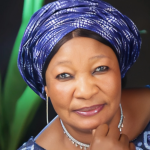The United Nations Children’s Fund (UNICEF) has called on media practitioners to emphasize reportage that promotes children’s confidence and protection of their rights, in order to help them grow into courageous and productive adults.
This call was made by the Chief of the UNICEF Field Office in Kano, Mr. Rahama Rihood Mohammed Farah, during the opening of a two-day training workshop for journalists on “Ethical Journalism and Child Rights Reporting.” The event was organized by UNICEF in collaboration with the Federal Ministry of Information and National Orientation, and was attended by media practitioners from across the Northern states at Tahir Guest House in Kano State.
Mr. Farah explained that some reports involving children—such as cases of rape, theft, and other traumatic incidents—can have long-lasting negative effects on their mental and emotional well-being.
He stressed the importance of journalists avoiding reports that may discourage children from attending school or traumatize them into losing confidence in themselves and the future of society.
UNICEF emphasized that ethical reporting builds confidence, heals divisions, eliminates misconceptions, and paves the way for an ideal society where children and all citizens can live with hope for a better and sustainable future.
Mr. Farah added that the media plays a critical role in informing both leadership and communities about child rights, and such reporting must be handled professionally and responsibly to avoid ambiguity or endangering children’s lives.
According to him, unethical and unprofessional stories breed distrust, deepen divisions, and can ignite crises in society.
ALSO READ: FG, El-Rufai clash over payment of ransom to bandits
“Professional journalists are always expected to take cognizance and avoid publishing stories about children—such as victims of sexual abuse or molestation—with their full details, images, or any information that could subject them to community stigmatization, gossip, or lasting social exclusion,” he said.
“In Nigeria, we know journalists are operating in a complex society with multidimensional challenges. Therefore, they must always remain guided by the fundamental ethics of the profession to support sustainable campaigns against child abuse.”
UNICEF, however, urged the training participants to become champions in the fight against unethical reporting, both in mainstream and social media, to safeguard the rights of children and everyone in society.
The participants in the two-day programme were drawn from public and private media outlets across the 19 northern states of Nigeria.
WATCH TOP VIDEOS FROM NIGERIAN TRIBUNE TV
- Let’s Talk About SELF-AWARENESS
- Is Your Confidence Mistaken for Pride? Let’s talk about it
- Is Etiquette About Perfection…Or Just Not Being Rude?
- Top Psychologist Reveal 3 Signs You’re Struggling With Imposter Syndrome
- Do You Pick Up Work-Related Calls at Midnight or Never? Let’s Talk About Boundaries






